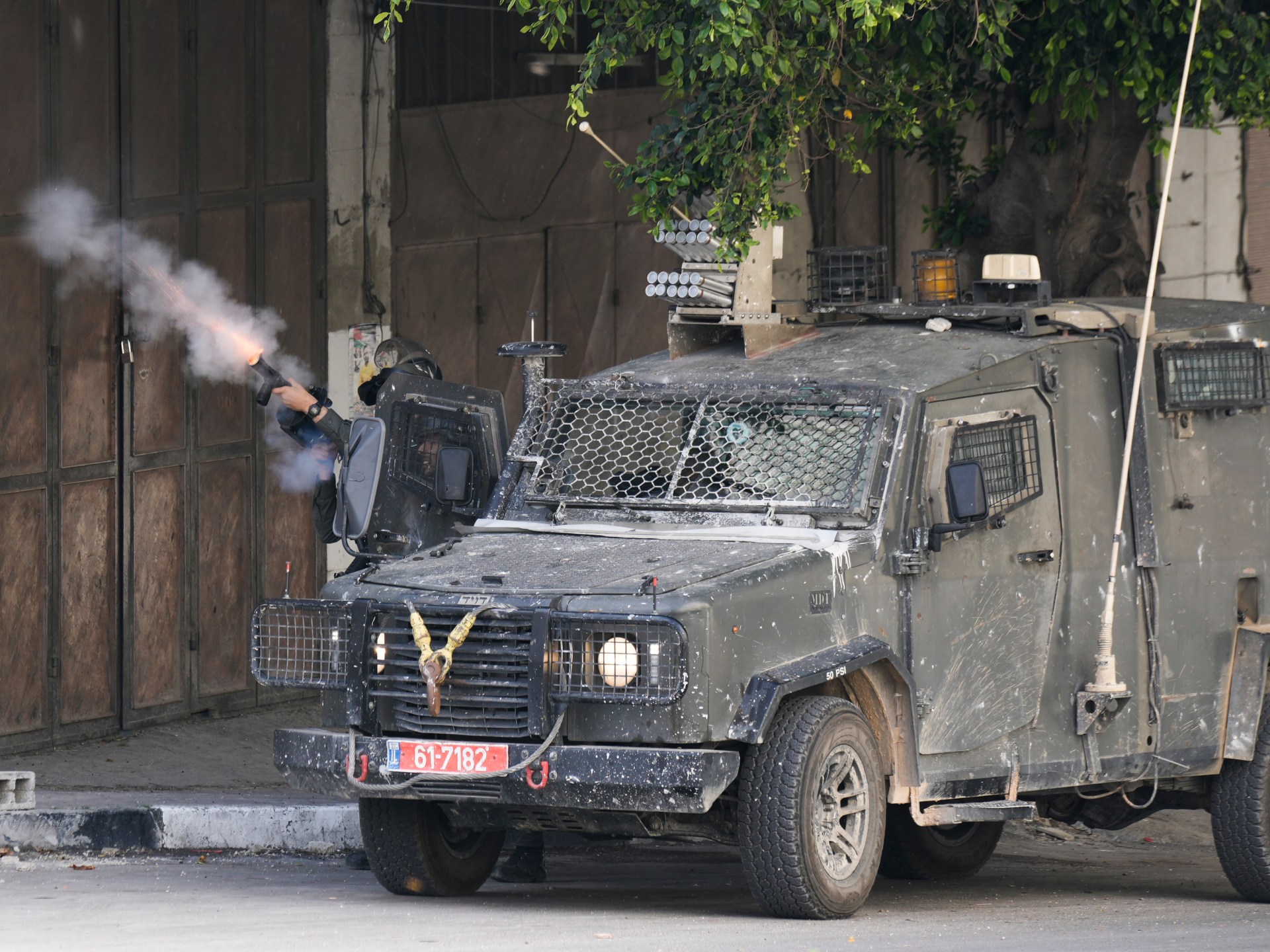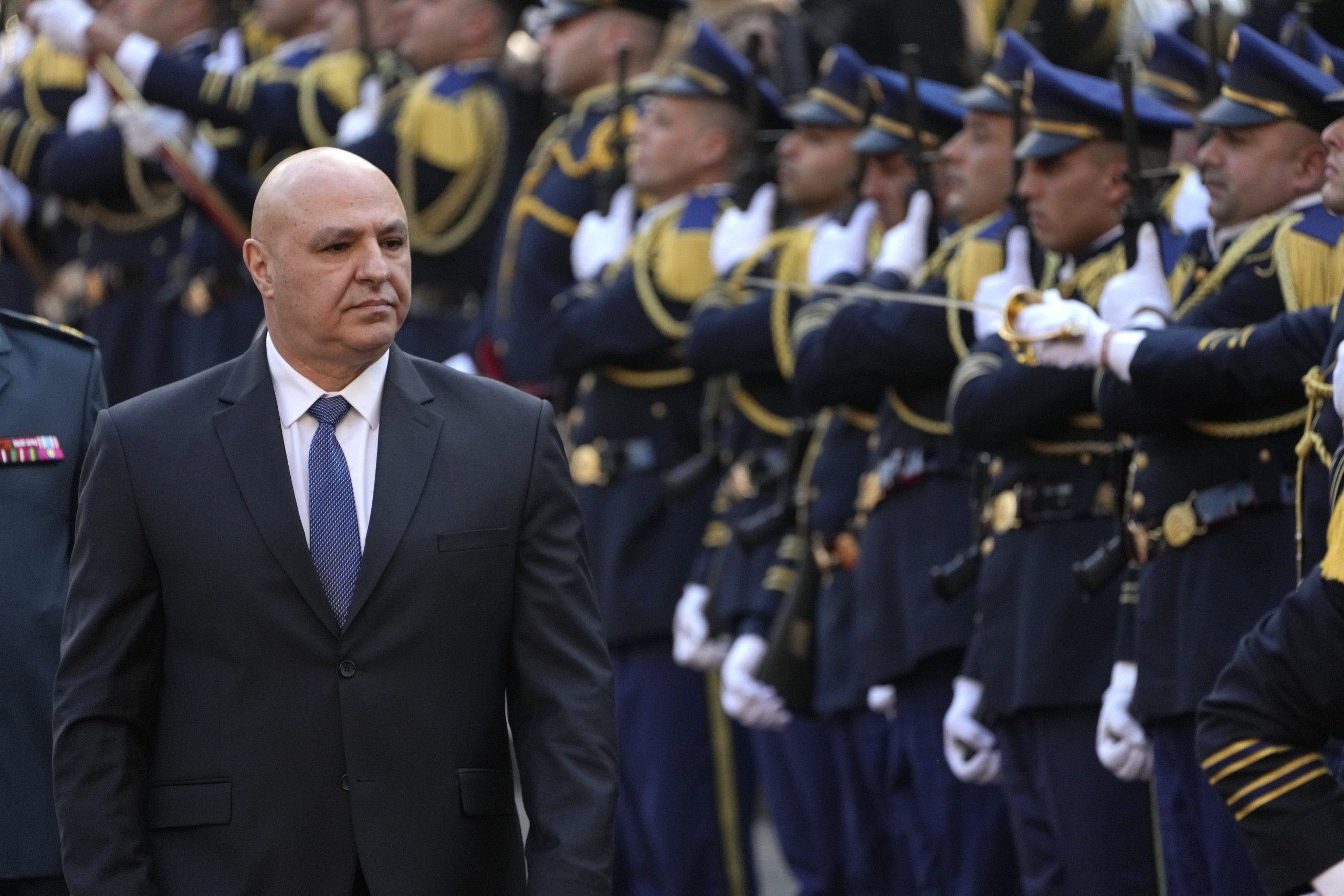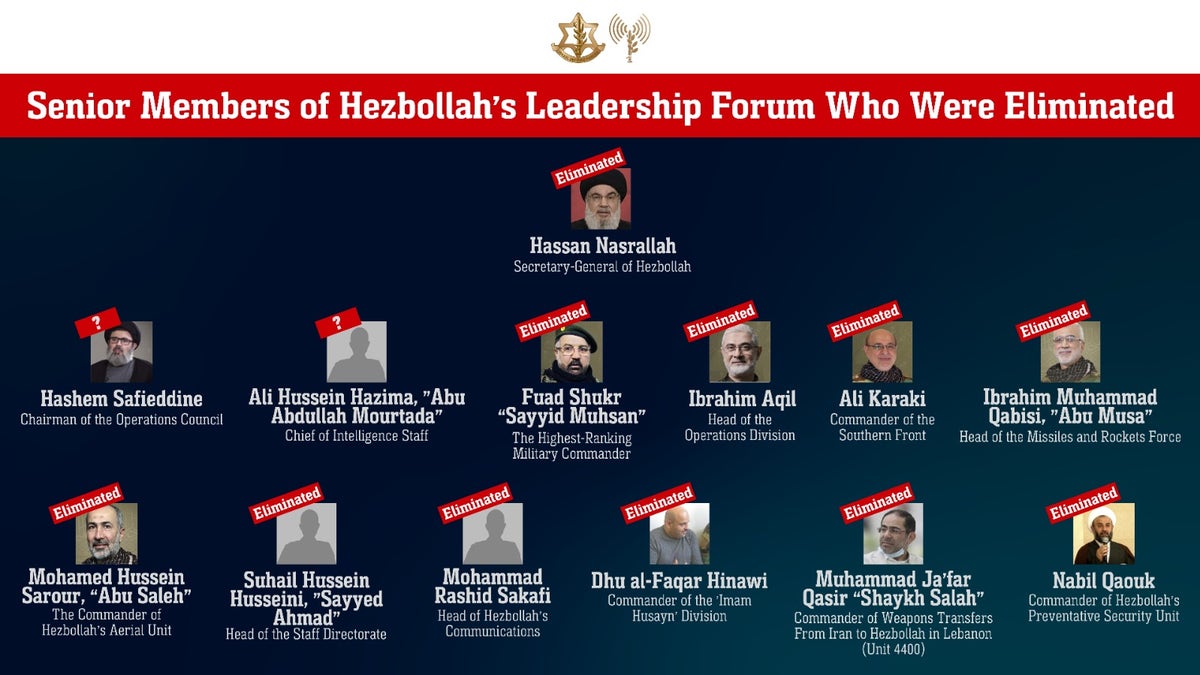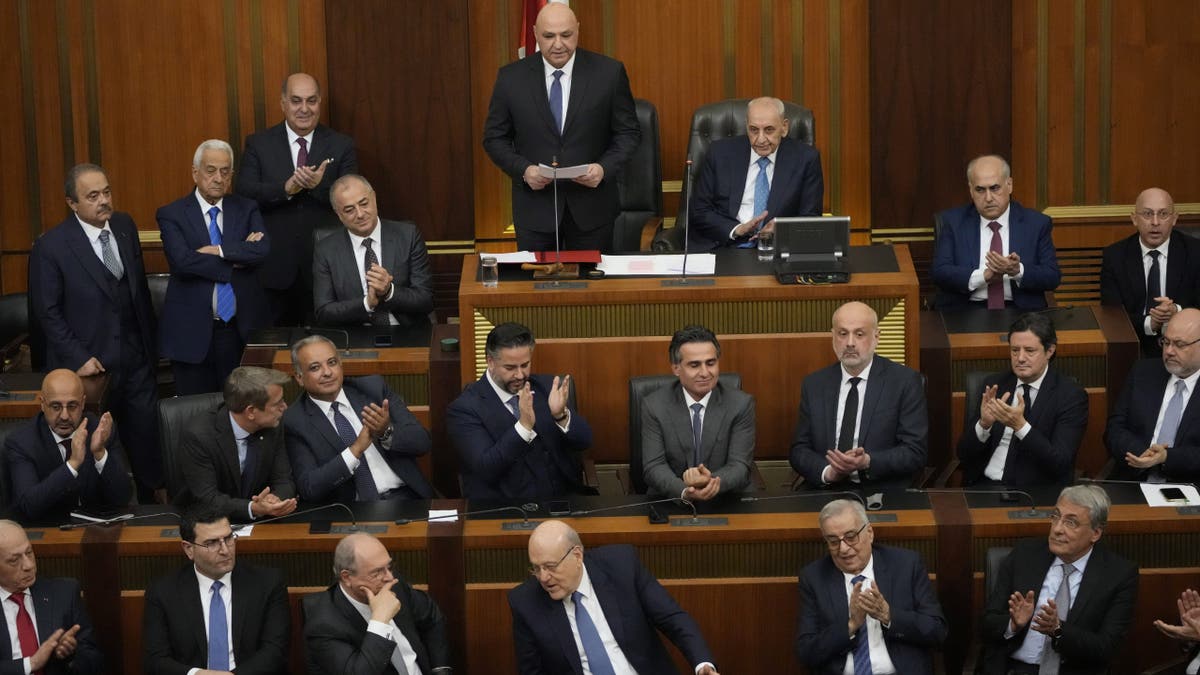World
Three Palestinians killed by Israeli forces in raid on Nablus

The three were killed in the early hours of Monday morning amid a blockade of the Balata refugee camp.
The Israeli army has killed three Palestinian men during a large-scale raid on the Balata refugee camp in the city of Nablus in the northern occupied West Bank.
The Palestinian health ministry identified the three men killed on Monday morning as Muhammad Abu Zaytoun, 32, Fathi Abu Rizk, 30, and Abdullah Abu Hamdan, 24.
At least seven other Palestinians were injured, including four with live ammunition, and dozens of others suffered tear gas inhalation, according to the ministry.
Hundreds of Israeli soldiers and special forces participated in the raid that began at about 1am local time (22:00GMT) and persisted until 5:00am (2:00GMT).
Israeli forces blockaded the camp’s entrances with bulldozers, and demolished and damaged several homes including with anti-tank grenades, according to residents.
Reporting from Balata refugee camp, Al Jazeera’s Givara Budeiri said at least seven homes inside the camp were demolished or damaged.
“The families here are remembering the 2002 invasion of Nablus. They felt the bullets had penetrated everything tonight,” said Budeiri, adding that ambulance crews were also targeted as they attempted to access the wounded.
Israeli occupation soldiers shot and killed three Palestinians during a large-scale assault on Balata refugee camp in the northern West Bank city of Nablus early this morning and injured six others, one of them seriously.
More: https://t.co/5zubVyyWlV pic.twitter.com/4dyNjIEMJu
— Wafa News Agency – English (@WAFANewsEnglish) May 22, 2023
The Israeli army said in a statement it arrested three Palestinian men “suspected of involvement” in armed activity and confiscated weapons, but did not comment on the killings. It also said it found an “explosives laboratory” in one of the apartments in the camp.
Monday’s raid took place after a car ramming attack near Nablus on Sunday in which an Israeli soldier was injured.
The Balata refugee camp is the largest in terms of population in the occupied West Bank, where some 30,000 Palestinians live in high population density on a quarter of a square kilometer.
Israeli forces also raided the Jenin refugee camp north of Nablus on Monday and arrested at least three Palestinian men.
Israel has been conducting near-daily raids and killings of Palestinians in the occupied West Bank since June 2021 in an attempt to crackdown on a phenomenon of growing armed resistance.
In 2022, Israeli forces killed more than 170 Palestinians, including at least 30 children, in the occupied West Bank and East Jerusalem, in what was described as the deadliest year for Palestinians living in those areas since 2006.
Since the start of 2023, Israeli forces have killed at least 156 Palestinians, including 26 children. The death toll includes 36 Palestinians killed by the Israeli army during a four-day assault on the besieged Gaza Strip between May 9 and 13.

World
US Supreme Court critical of TikTok arguments against looming ban

Justices at the United States Supreme Court have signalled scepticism towards a challenge brought by the video-sharing platform TikTok, as it seeks to overturn a law that would force the app’s sale or ban it by January 19.
Friday’s hearing is the latest in a legal saga that has pitted the US government against ByteDance, TikTok’s parent company, in a battle over free speech and national security concerns.
The law in question was signed in April, declaring that ByteDance would face a deadline to sell its US shares or face a ban.
The bill had strong bipartisan support, with lawmakers citing fears that the Chinese-based ByteDance could collect user data and deliver it to the Chinese government. Outgoing US President Joe Biden ultimately signed it into law.
But ByteDance and TikTok users have challenged the law’s constitutionality, arguing that banning the app would limit their free speech rights.
During Friday’s oral arguments, the Supreme Court seemed swayed by the government’s position that the app enables China’s government to spy on Americans and carry out covert influence operations.
Conservative Justice Samuel Alito also floated the possibility of issuing what is called an administrative stay that would put the law on hold temporarily while the court decides how to proceed.
The Supreme Court’s consideration of the case comes at a time of continued trade tensions between the US and China, the world’s two biggest economies.
President-elect Donald Trump, who is due to begin his second term a day after the ban kicks in, had promised to “save” the platform during his presidential campaign.
That marks a reversal from his first term in office, when he unsuccessfully tried to ban TikTok.
In December, Trump called on the Supreme Court to put the law’s implementation on hold to give his administration “the opportunity to pursue a political resolution of the questions at issue in the case”.
Noel Francisco, a lawyer for TikTok and ByteDance, emphasised to the court that the law risked shuttering one of the most popular platforms in the US.
“This act should not stand,” Francisco said. He dismissed the fear “that Americans, even if fully informed, could be persuaded by Chinese misinformation” as a “decision that the First Amendment leaves to the people”.
Francisco asked the justices to, at minimum, put a temporary hold on the law, “which will allow you to carefully consider this momentous issue and, for the reasons explained by the president-elect, potentially moot the case”.
‘Weaponise TikTok’ to harm US
TikTok has about 170 million American users, about half the US population.
Solicitor General Elizabeth Prelogar, arguing for the Biden administration, said that Chinese control of TikTok poses a grave threat to US national security.
The immense amount of data the app could collect on users and their contacts could give China a powerful tool for harassment, recruitment and espionage, she explained.
China could then “could weaponise TikTok at any time to harm the United States”.
Prelogar added that the First Amendment does not bar Congress from taking steps to protect Americans and their data.
Several justices seemed receptive to those arguments during Friday’s hearing. Conservative Chief Justice John Roberts pressed TikTok’s lawyers on the company’s Chinese ownership.
“Are we supposed to ignore the fact that the ultimate parent is, in fact, subject to doing intelligence work for the Chinese government?” Roberts asked.
“It seems to me that you’re ignoring the major concern here of Congress — which was Chinese manipulation of the content and acquisition and harvesting of the content.”
“Congress doesn’t care about what’s on TikTok,” Roberts added, appearing to brush aside free speech arguments.
Left-leaning Justice Elena Kagan also suggested that April’s TikTok law “is only targeted at this foreign corporation, which doesn’t have First Amendment rights”.
TikTok, ByteDance and app users had appealed a lower court’s ruling that upheld the law and rejected their argument that it violates the US Constitution’s free speech protections under the First Amendment.
World
In Tibet, Chinese Boarding Schools Reshape the ‘Souls of Children’

Across China’s west, the party is placing children in boarding schools in a drive to assimilate a generation of Tibetans into the national mainstream and mold them into citizens loyal to the Communist Party.
Tibetan rights activists, as well as experts working for the United Nations, have said that the party is systematically separating Tibetan children from their families to erase Tibetan identity and to deepen China’s control of a people who historically resisted Beijing’s rule. They have estimated that around three-quarters of Tibetan students age 6 and older — and others even younger — are in residential schools that teach largely in Mandarin, replacing the Tibetan language, culture and Buddhist beliefs that the children once absorbed at home and in village schools.
When China’s top leader, Xi Jinping, visited one such school in the summer, he inspected a dormitory that appeared freshly painted and as neat as an army barracks. He walked into a classroom where Tibetan students, listening to a lecture on Communist Party thought, stood and applauded to welcome him.
Mr. Xi’s visit to the school in Qinghai Province in June amounted to a firm endorsement of the program, despite international criticism. Education, he said, must “implant a shared consciousness of Chinese nationhood in the souls of children from an early age.”
Chinese officials say the schools help Tibetan children to quickly become fluent in the Chinese language and learn skills that will prepare them for the modern economy. They say that families voluntarily send their children to the schools, which are free, and that the students have classes in Tibetan culture and language.
But extensive interviews and research by The New York Times show that Tibetan children appear to be singled out by the Chinese authorities for enrollment in residential schools. Their parents often have little or no choice but to send them, experts, parents, lawyers and human rights investigators said in interviews. Many parents do not see their children for long stretches.
Dozens of research papers and reports from experts and teachers within the Chinese system have warned about the anxiety, loneliness, depression and other psychological harm of the schools on Tibetan children.
The Times reviewed and analyzed hundreds of videos posted to Chinese social media sites by Tibetan boarding schools, state media and local propaganda departments that showed how the schools operate and serve the party’s objectives.
Student life is heavy with political indoctrination. Schools, for instance, celebrate what China calls “Serfs’ Emancipation Day,” referring to the anniversary of the Communist Party’s full takeover of Tibet in 1959, after a failed Tibetan uprising and a Chinese crackdown that forced the Dalai Lama into exile. The party accuses the Dalai Lama, the Tibetan spiritual leader, of having ruled over a slaveholding society.
The Times also found video accounts of boarding school teachers and travelers that showed how some schools are underfunded and overstretched. We are not crediting some of the accounts by name to avoid drawing a backlash against them.
China has been expanding its boarding schools for Tibetan children even as countries like the United States, Canada and Australia have been grappling with the trauma inflicted on generations of Indigenous children who were forcibly removed from their families and placed in residential schools. (President Biden in October apologized on behalf of the U.S. government for the abuse of Indigenous children in residential schools from the early 1800s to the late 1960s, calling it a “a sin on our soul.”)
China has been eager to show that happy, well-fed Tibetan children are proudly declaring that they are Chinese.
Chugqensumdo Town Tibetan Boarding Central Primary School/Tencent Video
Songpan County Caoyuan Township Central Primary School/WeChat
Strangers in Their Own Homes
Gyal Lo, a Tibetan education researcher, became alarmed by the boarding schools in 2016, when he saw that his two preschool-aged grandnieces, who were attending one in his hometown in northwestern China, preferred to speak Mandarin, not Tibetan.
When the grandnieces, then ages 4 and 5, went home on the weekend, he said in an interview, they appeared withdrawn and spoke awkwardly in Tibetan with their parents, much changed from when he saw them in the previous year. Now they behaved “like strangers in their own home,” he said.
“I said to my brother, ‘What if you don’t send them to the boarding school?’” Gyal Lo said. “He said he had no choice.”
Gyal Lo set out to investigate the changes that families were going through as the schools expanded across Tibetan regions in China. Over the next three years he visited dozens of such schools, and saw that many Tibetan students spoke little of their mother tongue and were sometimes only able to see their parents once every several weeks or even months.
Children as young as preschool age were being sent away, he said, and parental visits were limited. The Times talked to three Tibetan parents with children of elementary-school age in residential schools who said that they had no choice and that they were not allowed to visit their children at will.
Many Tibetan parents accept that their children should learn Chinese for a chance at better jobs, said Gyal Lo, who now lives in Canada and is an activist working to draw attention to the schools. But most also want their children to first gain a strong grounding in their mother tongue.
“Children should learn from their grandparents, their parents, about their local language, about the names of things, about their traditions and their values,” Gyal Lo said in an interview. “Boarding schools create a physical and emotional distance from their parents and family members.”
Under Mr. Xi, such schools have sharply cut classes in Tibetan. Instead most classes are taught in Chinese, a language unfamiliar to many rural Tibetan children, who mix little with the Han Chinese majority.
Chinese officials insist that enrollment is voluntary. In reality, the government has closed village schools and privately run Tibetan language schools, while strictly enforcing mandatory education laws.
“One can hardly speak of any choice if local schools are all closed down,” said Fernand de Varennes, a human rights expert.
He and two other independent experts with the United Nations investigated the boarding schools and expressed alarm in 2023 at what they said appeared to be a “policy of forced assimilation of the Tibetan identity into the dominant Han-Chinese majority.”
At Risk of Abuse and Neglect
The text messages and voice memos trickled in, carrying urgent questions from Tibetans in China seeking legal advice about the treatment of children in boarding schools.
One man wrote to ask about what redress to demand for a child who suffered permanent injury from a classroom fight while the teacher was absent. Another said that a child was found dead in the bathroom of a boarding school, of unclear causes, and that the child’s parents wanted answers. The questions had been sent over the past three years to volunteers offering online legal advice to Tibetans. Times reporters reviewed several such messages, which were shared with us, but were unable to independently verify the accounts.
In 2021, a video surfaced online showing an elementary schoolteacher in eastern Tibet beating a child with a chair in his classroom. The video circulated on the internet in China more than 1,000 times before it was taken down. The school at which the beating took place has been described in state media reports as having students who lived on campus.
The video set off a public outcry. In response, the local government conducted an investigation and said in an official statement that the beating had left a three-inch-long wound on the child’s forehead and that the teacher had been suspended.
Physical punishment is outlawed in Chinese schools, but studies by Chinese academics have found that the practice persists in Tibetan boarding schools. A 2020 study by Chinese researchers on boarding schools for children from ethnic minorities said that some teachers “lacked concern for the students,” treated them roughly and were “even resorting to physical punishment.”
Local legislators and researchers in Tibetan areas have reported that the already overcrowded schools face serious shortages of teachers and support staff.
A 16-year-old living in a Tibetan village in Sichuan Province told The Times that beatings by teachers were a constant at the residential school he attended. He said that over the years he had accumulated several scars on his back from beatings by teachers, sometimes by hand and other times with a wooden ruler.
A Generation of Cultural Erasure
The Chinese government does not say how many Tibetan children are in boarding schools. The Tibet Action Institute, an international group that has campaigned to close the schools, estimates that among children aged 6 to 18, the figure is at least 800,000 — or three in every four Tibetan children.
The group arrived at its estimate, which it published in a report in 2021, based on local government statistics. Lhadon Tethong, a co-founder and director of the group, likened the Chinese schools to the colonial residential schools in Canada, Australia and the United States.
“Different time, different place, different government, but same impact,” she said, “in the sense of breaking cultural and familial bonds and roots, and psychologically damaging and traumatizing kids at their foundation.”
Statistics collected by The Times from local government documents across Tibetan areas show similar numbers in boarding schools, with some areas notably higher than others.
In Golog, a Tibetan area of Qinghai Province, 95 percent of middle school students were in such schools, according to a study published in 2017 in China’s main journal on education for ethnic groups. A report from the local legislature in 2023 said that 45 of the 49 elementary schools in Golog were residential.
The expansion of boarding school enrollment in Tibetan areas runs counter to the national trend. Chinese government guidelines issued in 2018 say that elementary school children should not, in general, be sent to such schools.
But children from ethnic minorities in border regions seem to be treated as an exception. In the far western region of Xinjiang, children of the Muslim Uyghur ethnic group have also been sent to residential schools in large numbers.
Chinese officials say such schools help children in the Tibetan region avoid long commutes. But official websites also promote instructions from Mr. Xi on minority education, arguing that youth in ethnic minority regions were at risk of having “erroneous” ideas about religion, history and ethnic relations.
To counter those threats, Mr. Xi said in 2014, children of the right age should “study in school, live in school and grow up in school.” The government’s hope is that those children will then become champions of the Chinese language and the party’s values.
In one video, which appears to be filmed and uploaded on social media as part of a school assignment, a Tibetan fourth-grader at a boarding school described how she saved the day when a Chinese cashier could not understand the girl’s mother, who spoke only Tibetan. She then called on other students to teach their parents Mandarin. “Be a Civilized Person, Speak Mandarin,” the video was titled.
Warnings From Within China
China’s drive to assimilate the Tibetans echoes history elsewhere in the world where Indigenous people were seen by their foreign occupiers as savages who needed to be civilized with boarding schools, causing trauma and abuses. It’s a parallel that Chinese officials reject.
But some of the starkest warnings about the toll that boarding schools are taking on Tibetan children come, strikingly, from within China’s education system.
Teachers, education researchers and local legislators in China have written reports describing Tibetan children as suffering from being separated from their families and from being largely confined within their schools.
In education journals, teachers have shared advice on helping Tibetan children cope: Create a homier feel by decorating dorm rooms and cafeterias, and be ready for students to be anxious about when they could return home.
Many boarding schools in more remote Tibetan areas appear to be underfunded and lacking in facilities, teachers and trained counselors. Local lawmakers found in 2021 that one school for elementary children in Golog, the Tibetan area of Qinghai, had no tap water or power connection for its cafeteria until they complained.
“Because boarding schools lack staff like dormitory supervisors, security guards and medical carers, the teachers must take on 24-hour duty weeks while also fulfilling their daily teaching duties,” said a 2023 survey conducted by the Golog legislature.
In video diaries uploaded to social media, teachers in Tibetan regions have described days in which, on top of teaching, they must also deliver food to students, show them how to make beds and tuck them in at night.
A teacher at an elementary school in Tibet, who goes by Ms. Chen on social media, posted a series of video blogs in 2022. In one, she documented a typical day that started with a morning study session before dawn and ended with her checking on the children before bedtime.
Another teacher, who identifies himself as Mr. Su on social media, says he teaches at an elementary and secondary school in Ngari, Tibet. He shot a video while patrolling the dormitories of younger students while on duty one night in 2023.
“All of us are basically standing in as their parents,” he wrote in one social media post.
Videos from Chinese travelers show how difficult it can be for rural schools to meet the needs of their students. In 2021, a traveler who recorded a visit to one school in Garze, a Tibetan area in Sichuan Province, said that the dorms looked nice but that there weren’t enough beds. Two children shared a bed and huddled to keep each other warm in the winter, as there was no central heating.
Some teachers defend the schools as ultimately for the good of children. Others described encountering widespread opposition to the policy.
A 2023 study from Garze concluded that parents, teachers and school administrators were reluctant to send young children to boarding schools. Many parents, the study said, conveyed “helplessness, worry, incomprehension and an inability to speak out” about the changes.
Education, especially in minority areas, is a politically sensitive topic. Tibetans who oppose the boarding schools risk imprisonment if they protest. Tashi Wangchuk, a Tibetan businessman who petitioned the government to preserve schooling in Tibetan and spoke to The Times about his efforts, was sentenced to prison for five years in 2018.
Yet, some still voice their worries. On Douyin, China’s version of TikTok, parents lamented the diminishing role that the Tibetan language plays in their children’s lives.
“After just one month in kindergarten, my child basically no longer speaks Tibetan. Now when we speak to our child in Tibetan, they only respond in Mandarin,” one person wrote in a comment.
“No matter how we try to teach Tibetan now, they won’t learn it. I’m really heartbroken.”
World
Lebanon's new president strikes a nationalistic tone amid regional shifts, further weakening of Hezbollah

Lebanon’s political landscape has undergone a dramatic shift with the election of Joseph Aoun as president. After more than two years of political deadlock, the Lebanese Parliament elected the army commander on Thursday with 99 out of 128 votes.
Aoun’s election represents a significant achievement for the anti-Hezbollah camp, reflecting the weakening influence of the powerful Shia terrorist organization within Lebanon’s political system. Despite this, experts say Hezbollah remains a formidable force in the country, and the challenges Aoun faces in balancing Lebanon’s internal politics and foreign relations remain immense.
For much of the past two years, Hezbollah worked tirelessly to block any movement toward the election of a new president. The group had strongly opposed Aoun’s candidacy. However, as the political situation evolved and the ousting of Assad from Syria unfolded, Hezbollah was ultimately forced to accept Aoun, who secured the presidency.
“Hezbollah had been opposed to his election for the last two and a half years and had blocked any process toward electing a president for all that time. Now, they’ve voted for him in the second round, which indicates they are in a bind, that they are weaker, and their leverage is not what it was,” Vice President for International Engagement at the Middle East Institute Paul Salem told Fox News Digital.
ISRAEL DEGRADES IRAN-BACKED HEZBOLLAH TERRORISTS IN SPECTACULAR PAGER EXPLOSION OPERATION: EXPERTS
Newly-elected Lebanese President Joseph Aoun reviews the honor guard upon his arrival at the Lebanese Parliament to be sworn in as the new president in Beirut on Thursday, Jan. 9, 2025. (AP Photo/Hussein Malla)
Salem points to the broader shift in regional politics, notably the collapse of the Assad regime in Syria, which has left Hezbollah increasingly isolated. “They are now not only cut off from Iran, but they’re also isolated in the region. They’re the only Shiite community between here and Basra, and it’s a Sunni takeover of Damascus, which used to be dominated by a friendly Alawite, pro-Iranian regime. It’s a huge historic shift that leaves the Shiites and Hezbollah deeply isolated. Hezbollah’s future is worse than its present,” he added.
The U.S. and Israel, along with other Western and Arab powers, have long sought to distance Lebanon from Hezbollah’s influence, and Aoun’s election could be a step in that direction.
Aoun, a Maronite Christian and the commander of the Lebanese army, took office with a strong message focused on Lebanon’s sovereignty. In his inaugural speech, he emphasized the necessity for the state to have a monopoly on the use of force.
David Schenker, former head of the Bureau of Near Eastern Affairs at the U.S. State Department under the first Trump administration, remarked that Aoun’s speech was both a positive and pragmatic step for Lebanon. “He talked about disarming all groups and ensuring that weapons are under the control of the state,” Schenker said. “This was a good move, as it shows a commitment to sovereignty and the rule of law.”
CHRISTIAN LEADER IN LEBANON URGES US, ALLIES TO INTERVENE TO STOP HEZBOLLAH

An updated graphic detailing the members of Hezbollah’s leadership who have been eliminated by the Israeli Defense Forces. (IDF Spokesman’s Unit)
However, Schenker, who is currently the Taube Senior Fellow at The Washington Institute and director of the Linda and Tony Rubin Program on Arab Politics, cautioned that Aoun’s position as president does not grant him absolute power in Lebanon’s political system. “The president is not the most powerful position in Lebanon. The key position will be the prime minister. It remains to be seen whether Aoun will show the same courage in his new role that he demonstrated as chief of staff,” Schenker noted.
Though Hezbollah has been militarily weakened by recent Israeli campaigns and the assassination of its leader Hassan Nasrallah, among other key leaders, it still retains significant influence, particularly in southern Lebanon. However, Schenker says the organization’s ability to intimidate Lebanon’s population is diminishing. “Hezbollah isn’t the force it was. It can still reactivate its killing machine if needed, but it no longer dominates the way it did before,” he said.
“Hezbollah has calculated that they’ve lost this battle against Israel, and then they lost another battle in Syria. So their interest now is to lay low, have a president and government that’s acceptable to the U.S. and the region, which, at the end of the day, they hope will protect them from any further Israeli incursions and help their people,” Salem explained. “They need a functioning government to secure international aid for the millions displaced by their actions in southern Lebanon. It’s about survival for them, not just politically, but financially.”

Hezbollah terrorists form a human barrier during the funeral procession of slain top Hezbollah commander Fuad Shukr in Beirut’s southern suburbs on Aug. 1, 2024. (Photo by KHALED DESOUKI/AFP via Getty Images)
Aoun’s election is not only significant for Hezbollah’s position in Lebanon, but also for the country’s relations with external powers like the U.S. and Israel. Lebanon has faced economic collapse, with its currency devalued by over 99%, and nearly 80% of the population now living below the poverty line. Hezbollah’s previous resistance to international pressure now seems less tenable.
The U.S. has long supported Lebanon’s military and is expected to strengthen its ties with Aoun, given his role in the army and his pro-sovereignty stance. Schenker said that Lebanon’s future alignment with the U.S. and regional allies such as Saudi Arabia could provide the country with much-needed international support.

Lebanese cabinet ministers applaud the newly-elected Lebanese President Joseph Aoun, standing at the top, as he gives his first speech at Parliament after being sworn in as president in Beirut on Thursday, Jan. 9, 2025. (AP Photo/Hussein Malla)
“The U.S. military has been close to the Lebanese military for many years,” Salem told Fox News Digital. “That has been the strongest link between the U.S. and Lebanon. So to have the head of the military come to power, he’s a known figure in Washington. He’s known to the military, and now, he’s known to the diplomats and politicians, and will be known to President Trump and others over time. This realignment could put Lebanon on a much more natural path of cooperation with the U.S., Saudi Arabia, and other regional allies.”
Israel will also be closely monitoring Aoun’s presidency. Schenker said that Aoun’s commitment to U.N. Security Council Resolution 1701, which calls for disarmament in southern Lebanon, could lead to a more cooperative stance from Lebanon toward Israel. “Israel will be invested in Lebanon’s implementation of 1701,” Schenker said. “Aoun’s stance will influence Israel’s position toward Lebanon, as the Trump administration has clearly signaled a desire to end the wars in the region.”
-

 Business1 week ago
Business1 week agoThese are the top 7 issues facing the struggling restaurant industry in 2025
-

 Culture1 week ago
Culture1 week agoThe 25 worst losses in college football history, including Baylor’s 2024 entry at Colorado
-

 Sports1 week ago
Sports1 week agoThe top out-of-contract players available as free transfers: Kimmich, De Bruyne, Van Dijk…
-

 Politics1 week ago
Politics1 week agoNew Orleans attacker had 'remote detonator' for explosives in French Quarter, Biden says
-

 Politics1 week ago
Politics1 week agoCarter's judicial picks reshaped the federal bench across the country
-

 Politics6 days ago
Politics6 days agoWho Are the Recipients of the Presidential Medal of Freedom?
-

 Health5 days ago
Health5 days agoOzempic ‘microdosing’ is the new weight-loss trend: Should you try it?
-

 World1 week ago
World1 week agoIvory Coast says French troops to leave country after decades













